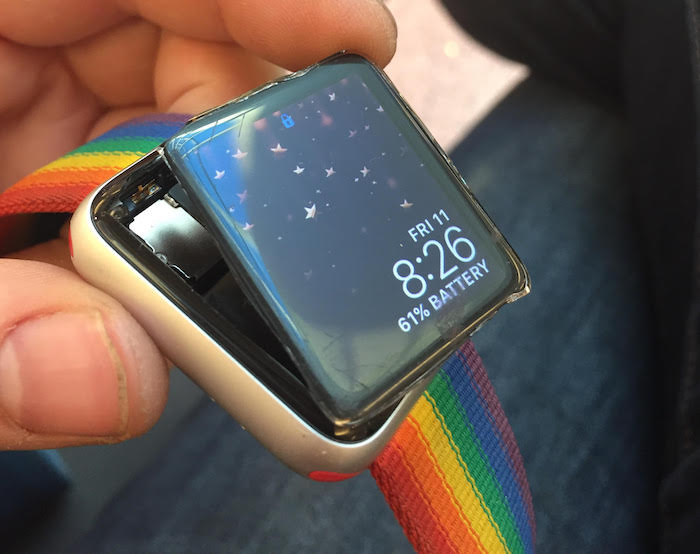

A New Jersey resident has sued Apple over swollen Apple Watch batteries. Gina Priano-Keyser filed a proposed class action lawsuit against Apple this week in U.S. district court, accusing the Cupertino firm of fraudulent business practices and breach of warranty related to the Apple Watch.
The plaintiff alleges that all Apple Watch models, including the latest Series 4 models have a defect that results in the lithium-ion battery swelling and causing the screen to “crack, shatter, or detach from the body” of the watch “through no fault of the wearer, oftentimes only days or weeks after purchase.”
Priano-Keyser says Apple either knew or should have known that the Apple Watch was defective before selling them, and says the Watches pose “a significant safety hazard to consumers” – of which a “number” have suffered “cuts and burns” because of the defects.
Apple has previous acknowledged that some Apple Watch models could possibly be affected by swollen batteries, and had offered free repairs for up to three years after the purchase date.
However, Priano-Keyser’s complaint alleges the company often attributes the issue to “accidental damage” and thus “refuses to cover repairs” under warranty.
The plaintiff states she purchased an Apple Watch Series 3 in October 2017. While charging the device in July 2018, she says the screen “unexpectedly detached” from the watch’s body and cracked, making the Watch “unusable.”
During an August 2018 Genius Bar appointment, the Plaintiff claims, Apple denied a free repair of the Apple Watch under warranty, instead quoting her a $229 out-of-warranty fee for service.
The complaint cites more than a dozen similar experiences by users who described them in the Apple Support Communities.
The plaintiff is seeking damages in an amount to be proven at trial for herself and all others similarly situated. The proposed class is restricted to New Jersey residents who are current and former owners of the Apple Watch Series 1, Series 2, and Series 3 purchased in New Jersey.
A similar lawsuit was filed in California in June 2018, but was tossed out of court by U.S. District Judge Lucy Koh in January due to being “vague.” The New Jersey lawsuit hopes to address the “vagueness” issue by attempting to identify a cause.
(Via MacRumors)